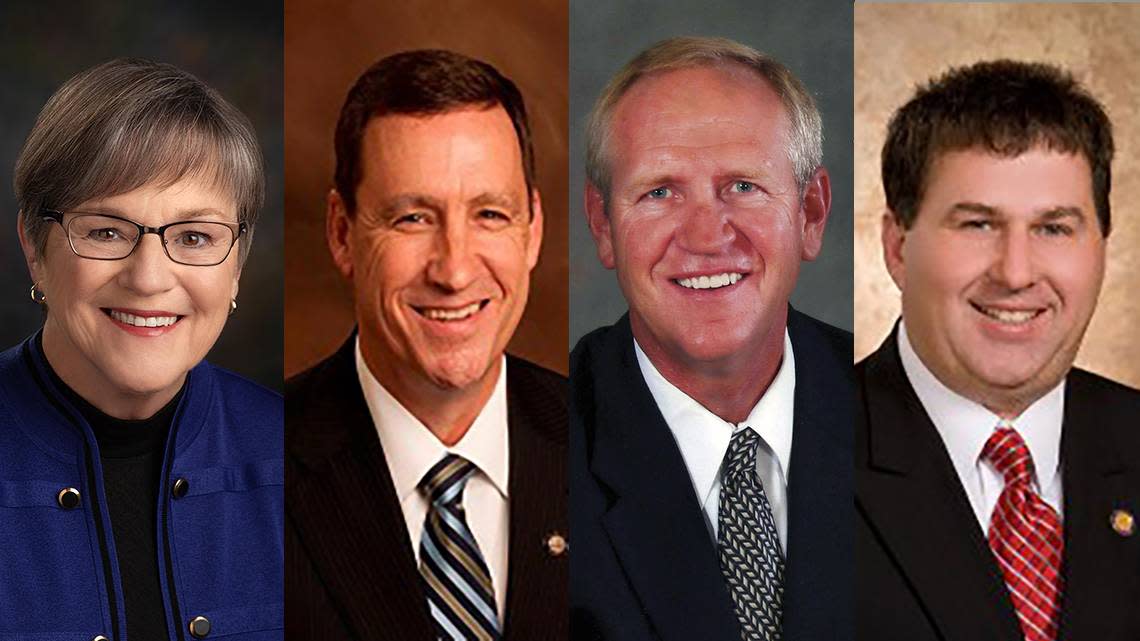‘Flat tax’ leaves out regular Kansans. Our bipartisan plan gives real tax relief | Opinion

No matter where you travel in the state, there’s one thing on every Kansan’s mind: the absurdly high cost of living. Though inflation has slowed, many prices have continued to rise — such as housing, food and child care — and it’s incredibly stressful for families just trying to stay afloat.
Thankfully, the Kansas economy has continued to grow at a record pace, filling our state’s coffers and making it possible for us to deliver major relief.
The four of us are not a likely team — two Republicans representing opposite sides of the state, an independent legislator, and a Democratic governor — but we all agree: We must deliver major tax cuts. We’ve teamed up together, along with other colleagues in the statehouse, to come up with a plan to put nearly $1 billion back in Kansans’ pockets over the next three years.
It’s a fiscally responsible and comprehensive proposal, offering something for Kansans of all walks and at all stages of life. It cuts the taxes that have the greatest impacts on people’s wallets.
First, groceries. Because of the Axe the Food Tax legislation we passed and signed in 2022, we’ve saved Kansans more than $187 million at the grocery store as of Jan. 1. The sales tax on food is now down to 2% — less than a third of what it was before the bill. Our plan will do what should have been done in the first place: Bring that tax down to zero, effective immediately.
Second, retirement. Our retirees have worked hard their entire lives, and their next chapter in life shouldn’t be spent worrying about how they’ll afford medications or other essentials. This plan eliminates state taxes on Social Security income — and keeps our retirees in Kansas.
Third, the most despised tax of them all: property taxes. Right now, Kansans across the state are frightened of being priced out of the homes where they’ve raised their families and built their lives. This plan would raise the residential exemption on the statewide property tax from $42,000 to $100,000, providing more than $100 million in tax relief for homeowners. Many households will see almost their entire state property tax bill eliminated.
There are many other cuts outlined in this plan, from a back-to-school sales tax holiday on school supplies, to raising the standard deduction, to a tax credit that will make child care more affordable. In short, this tax plan will benefit middle-class Kansans — while maintaining our state’s ability to balance our budget and make key investments in schools, infrastructure and public safety.
That’s more than we can say about the other tax proposal out there — the “flat tax,” where everyone pays at the same rate regardless of income or ability to pay. It’s part of the reason we’re banding together — to ensure the flat tax policy does not go through. Because if it did, our state would be sent right back to the days of chronically underfunded schools, four-day school weeks and crippling debt. Kansans have seen a reckless tax experiment wreak havoc before — and they don’t want to go back.
Beyond being unsustainable for our state budget, the flat tax also would help only the super wealthy while doing little to nothing for working Kansans. Nearly all its benefits would go to the wealthy, while middle-class Kansans wouldn’t see the property relief, tax cuts on groceries or child care, or elimination of state Social Security taxes that our plan provides.
So let’s not waste any more time discussing a flat tax. Clearly, given the bipartisan coalition we have put together, the flat tax can’t, and shouldn’t, become law. Instead, we encourage legislators to get on board with what their constituents actually want: money back in their pockets and a balanced state budget.
Democrat Laura Kelly is governor of Kansas. Independent Dennis Pyle represents District 1 in the Kansas Senate. Republican state Sen. John Doll represents District 39. Republican state Sen. Rob Olson represents District 23.


